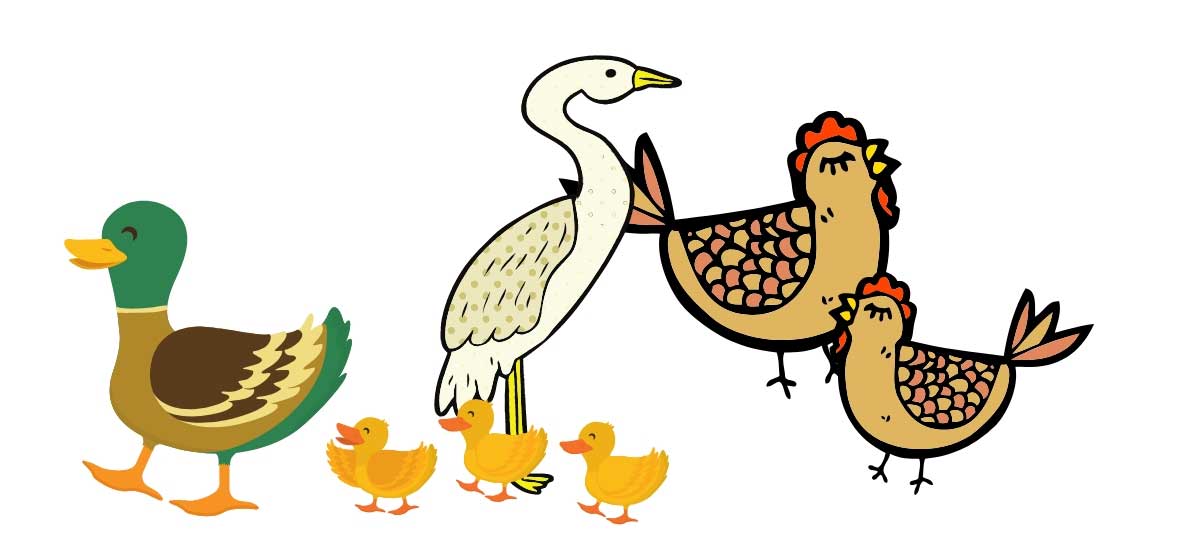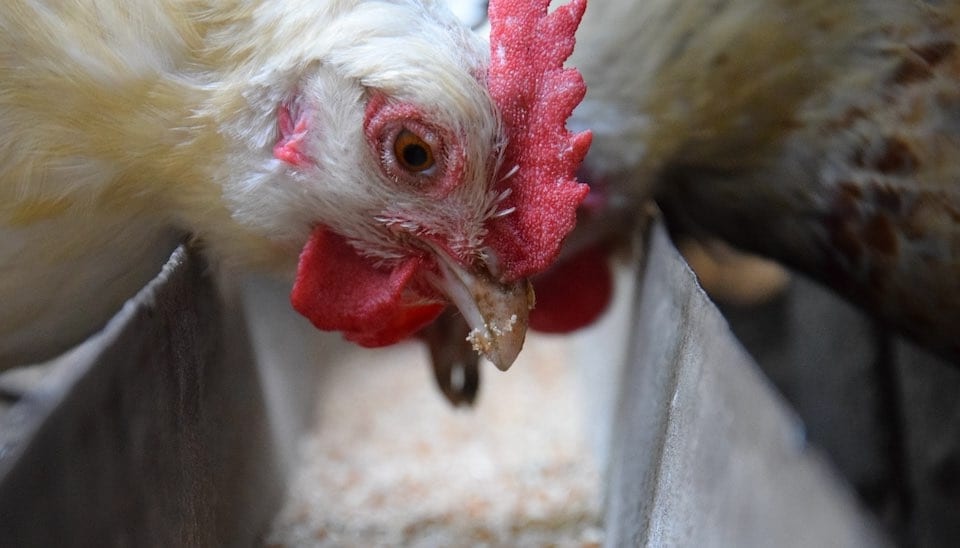Can You Keep Ducks, Geese, and Chickens Together? A Comprehensive Guide
Many poultry keepers wonder if they can successfully keep ducks, geese, and chickens together. The answer is yes, but it comes with several important considerations.
These birds have different needs, behaviors, and preferences, so understanding these differences is key to maintaining a peaceful and healthy mixed flock.
Understanding the Different Needs of Ducks, Geese, and Chickens
Before adding ducks and geese to your chicken coop, it’s crucial to consider the specific needs of each species. Failing to do so can lead to stress, health issues, and even conflict within the flock.
1. Different Feed Types
Feeding ducks, geese, and chickens requires careful attention to their different nutritional needs. All poultry can use the Dine-A-Chook feeders, but the type of feed may need some attention.
While chickens thrive on layer pellets, ducks and geese do better on waterfowl-specific feed due to their higher energy needs and the necessity for more niacin. Niacin is essential for ducks, especially ducklings, to prevent leg deformities.
If you’re using chicken feed for a mixed flock, you’ll need to supplement with niacin, which can be done by adding brewer’s yeast to their diet.
It's also important to avoid medicated chicken feed for ducks and geese. The medication, typically used to prevent coccidiosis, can be harmful to waterfowl.
Instead, opt for non-medicated feed or waterfowl-specific options to ensure their safety and health. If you’re raising ducklings and goslings alongside chicks, remember that young waterfowl need higher protein levels in their starter feed. Using a waterfowl starter feed will give them the best start in life.
2. Nesting and Sleeping Quarters
When it comes to nesting and sleeping, ducks, geese, and chickens have different preferences that need to be accommodated.
Chickens usually prefer elevated nesting boxes, while ducks and geese are ground nesters. They feel more secure nesting on the ground, often choosing a secluded corner for laying eggs. Providing separate nesting areas that cater to these preferences can reduce stress and encourage healthy laying habits.
For sleeping, chickens like to roost off the ground on perches, but ducks and geese prefer to sleep on the ground.
If they have a secure outdoor area, they might even choose to sleep outside. It’s beneficial to have a well-ventilated, predator-proof outdoor shelter for your waterfowl, allowing them to sleep where they feel most comfortable while keeping them safe from predators.
3. Managing Space and Preventing Conflict
Space is crucial when managing a mixed flock. Ducks and geese are generally larger and can be more territorial than chickens, so providing enough room is essential to reducing stress and aggression.
Overcrowding is a common cause of conflict among poultry. Ducks and geese need more space than chickens to move around comfortably.
The more outdoor space you can offer, the better it will be for all the birds.
Ducks and geese establish a pecking order just like chickens, but their larger size means they can dominate smaller chickens if space is limited. Providing plenty of space and creating hiding spots or separate areas within the coop can help reduce these conflicts.
Additionally, having separate feeders and watering stations can prevent the larger birds from bullying the smaller ones, ensuring everyone gets their share without any trouble.

4. Handling Male Birds
Managing male birds in a mixed flock can be tricky, especially during the breeding season. Drakes (male ducks), ganders (male geese), and roosters each have their own behaviours that can affect the harmony of your flock.
The key to a peaceful flock is having the right ratio of males to females. For roosters, it’s generally one rooster to every eight hens. For ducks, aim for at least two female ducks per drake. This helps prevent aggressive behaviour and reduces the risk of a drake trying to mate with a chicken, which can cause serious injury or even death due to the size difference and the way the birds are built.
During the breeding season, drakes can become more aggressive. If you notice a drake harassing the chickens, you might need to separate him temporarily. Providing enough space, and possibly even separate areas for each species, can help manage this behaviour and keep the peace in your flock.
5. Dealing with Mess
Waterfowl like ducks and geese are naturally messy, especially when it comes to water. They love to splash around, which can quickly turn a dry coop into a damp mess. This isn’t just annoying—it can create unhealthy conditions for your chickens, who are more prone to respiratory issues in damp environments.
One way to keep the mess under control is by using nipple drinkers, which reduce water spillage compared to open drinker cups. However, ducks and geese still need access to water sources where they can fully immerse their heads to keep their nostrils clear and stay healthy. Setting up a separate water area for your ducks and geese, away from the chickens’ living space, can help keep things tidy.
Regular cleaning is also essential. Remove wet bedding as soon as possible and make sure the coop has good ventilation to reduce moisture. Keeping the coop clean and dry will help prevent health problems and make life more comfortable for all your birds.
6. Protecting from Predators
Geese are known for being protective, and they can be great at alerting you to the presence of predators. Their loud honking can scare off smaller predators, and their size and aggressive nature can be a good deterrent.
If you want to use geese as guards, it’s best to raise them with your chickens from a young age. This helps them bond with the flock and makes them more likely to take on the role of protector. However, geese aren’t a replacement for secure fencing and other predator-proofing measures.
To get the most out of a guard goose, consider keeping just one goose and raising it with your chickens. A lone goose is more likely to see the chickens as its flock and be more dedicated to protecting them. Make sure your coop and run are secure with strong fencing, and always lock up your birds at night to keep them safe from nocturnal predators.
7. Additional Tips for a Successful Mixed Flock
Here are a few more tips to help your mixed flock thrive:
- Introduce New Birds Slowly: When bringing in new ducks or geese to an established chicken flock, take your time. Gradual introductions help everyone get used to each other and reduce the risk of aggression.
- Regular Health Checks: Ducks, geese, and chickens can carry different parasites or diseases, so regular health checks are important. Keep an eye out for signs of illness and act quickly to prevent problems from spreading through your flock.
- Provide Enrichment: Keep your birds happy by providing enrichment like perches, dust baths, shallow pools for waterfowl, and areas for foraging. A stimulating environment helps reduce boredom and promotes natural behaviours, making for a happier, healthier flock.
If you have any other tips for the question of Can I keep Ducks and Geese with Chickens? Please contact us so we may consider adding them to this article to help other backyard Duck and Chicken Keepers.
Shop now:
Regards
Rachel at Dine-A-Chook New Zealand






